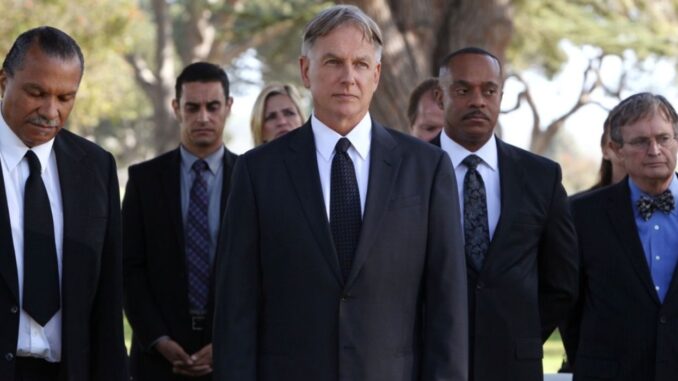
The season finale of a long-running television series isn't just a closing chapter; it's a meticulously crafted narrative detonation, designed to leave viewers reeling, theorizing, and counting down the days until the next premiere. For two decades, NCIS has mastered this art, not just wrapping up storylines but detonating narrative bombs that reverberate long after the credits roll. These aren't just cliffhangers; they are emotional gut punches, sudden departures, and game-changing revelations designed to leave us breathless, desperate for answers, and intimately tied to the fates of our beloved MCRT team. While every finale brings its own brand of tension, some moments transcended mere suspense, burning themselves into the collective memory of fans as the ultimate shocks.
Perhaps the most visceral and shocking of all NCIS finales, for its sheer finality and the death of a truly major character, was Season 5's "Judgment Day" which saw the brutal death of Director Jenny Shepard. The sun-drenched diner in the Mojave, seemingly innocuous, became the stage for one of NCIS's most brutal and definitive shocks. Jenny, struggling with a terminal illness and hunted by her past, bravely faced her demons head-on, dying in a hail of gunfire alongside Mike Franks. A main character, a director, a woman integral to Gibbs' past and present, gone in a moment that felt both inevitable and utterly devastating. The subsequent funeral, the quiet grief of the team, and Gibbs' stoic processing of yet another loss, solidified this as a foundational moment of character mortality that rippled through the show for seasons to come. It wasn't just a cliffhanger; it was an irrevocable loss that underscored the peril the team constantly faced.
However, if Jenny’s death was a definitive end, Season 13's "Family First" delivered a shock of a different, more torturous kind – a character death that turned out to be a cruel, beautiful lie, and in doing so, instigated the departure of another beloved character. The news that Ziva David, the fierce, enigmatic Mossad officer and a foundational character for many seasons, was dead in an explosion in Israel, sparked an outcry among fans. The revelation was delivered to a heartbroken Tony DiNozzo, and the subsequent discovery of their daughter, Tali, left viewers in a spin. This wasn't just a shock; it was a narrative earthquake that led directly to Tony DiNozzo's departure from the team, choosing to leave NCIS to raise his newfound daughter. The moment felt final, yet left an aching void, a testament to the character's impact and the raw emotion of Michael Weatherly's performance. Little did we know, this "death" would become one of the show's greatest narrative misdirects years later, making the initial shock even more profound in retrospect.
Long before the grand farewells and explosive returns, NCIS established its willingness to wound its protagonist in Season 3's "Hiatus," a finale that saw Leroy Jethro Gibbs fighting for his life. A single bullet, fired in the dusty landscape of Paraguay, pierced not just Gibbs' body but the viewers' sense of security. As he lay unconscious, drifting through visions of his deceased wife Shannon and daughter Kelly, the team scrambled to find answers. This wasn't a death, but it was an immediate, life-threatening injury to the stoic leader who had always seemed invincible. It forced the team to operate without their anchor, highlighting their individual capabilities while simultaneously underscoring their reliance on him. The shock was the vulnerability of Gibbs, a man who rarely showed weakness, now teetering on the brink.
Not all shocks have been about the core team directly; sometimes, the pain radiates outward, reminding us of the human cost of their work. Season 10's "Damned If You Do" delivered such a blow with the death of Director Leon Vance's wife, Jackie. She wasn't an agent, but a grounding force for the often-brooding Director, a symbol of the normalcy and domesticity that balanced the team's chaotic lives. Her sudden, brutal death in a terrorist attack, collateral damage in a plot against Vance, was a gut-wrenching moment. It was a stark reminder that the line of fire extended beyond the agents themselves, pulling their loved ones into the crosshairs and leaving Vance, and by extension the team, profoundly scarred. The quiet, profound grief of Vance, a man often defined by his composure, was one of the season's most moving and shocking revelations.
More recently, NCIS once again targeted its stoic leader in Season 18's "Rule 91," with a symbolic and literal explosion that redefined his future. After a fraught season investigating a serial killer, Gibbs’ beloved boat, “Rule 91,” exploded on Lake Placid, seemingly taking him with it. While fans quickly surmised Gibbs wasn't dead, the visual of his boat in flames, followed by his body floating away, was a searing image. It wasn't just a cliffhanger for his life, but for his entire character arc. This shock ultimately led to Gibbs' peaceful, yet permanent, departure from the MCRT in Alaska, signaling an end of an era that viewers had come to believe might never arrive.
These moments aren't just cheap thrills; they are pivotal turning points that redefine character arcs, shift team dynamics, and often, prompt the departures of beloved actors. From the raw, finality of Jenny's death to the clever deception of Ziva's "demise," and the existential threats to Gibbs and the team's loved ones, NCIS season finales have consistently delivered narrative shocks that solidify the show's grip on its audience. They remind us that in the world of NCIS, no one is truly safe, and the emotional stakes are always, terrifyingly, real. And it's this willingness to push boundaries, to surprise and devastate us, that has kept us glued to our screens for twenty years, eagerly anticipating the next narrative detonation.